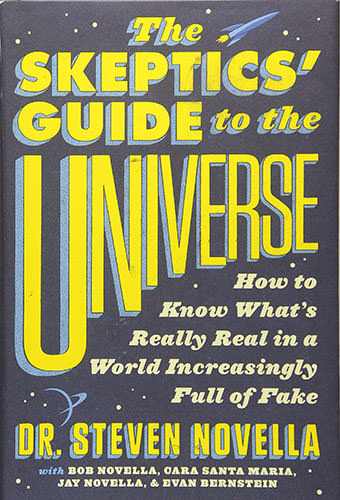This is a wonderful overview of skeptical thought and biases that affect the way that every single one of us thinks. A must-read.
The team that wrote this book also hosts the wonderful SGU Podcast.
The Skeptics’ Guide to the Universe
“Respect for Knowledge and Truth—Skeptics value reality and what is true. We therefore endeavor to be as reality-based as possible in our beliefs and opinions. This means subjecting all claims to a well-founded process of evaluation. Skeptics believe that the world is knowable because it follows certain rules, or laws of nature. The only legitimate method for knowing anything empirical about the universe follows this naturalistic assumption. In other words, within the realm of the empirical (factual knowledge based on evidence), you don’t get to invoke magic or the supernatural.”
The Skeptics’ Guide to the Universe
“Anyone who engages in social media witnesses the attribution error on a regular basis. Not only is there a tendency to assume other people’s motivations; we hastily infer their arguments and positions, based upon the pigeonhole into which we think they fit. Without listening to what they are actually saying, charitably interpreting that, and giving them an opportunity to clarify their position, we risk attributing a position to them that they don’t have, attacking a straw man, and then looking foolish. I’ve seen these exchanges rapidly degrade into mutual accusations of being a troll. There are real trolls out there, but sometimes trolling is in the eye of the beholder. Sometimes we can be the troll.”
The Skeptics’ Guide to the Universe
“So, while we cannot trust the stories we are told, tradition, faith, convenient or reassuring narratives, charismatic figures, or even our own memories, we can slowly and carefully build a process by which to evaluate all claims to truth and knowledge. A big part of that process is science, which systematically tests our ideas against reality, using the most objective data possible. Science is still a messy and flawed process, but it is a process. It has, at least, the capacity for self-correction, to move our beliefs incrementally in the direction of reality. In essence, science is the process of making our best effort to know what’s really real.”
The Skeptics’ Guide to the Universe
“science requires courage—the courage to face reality and accept its findings, even if they upset us or are disruptive to our comfortable ideology.”
